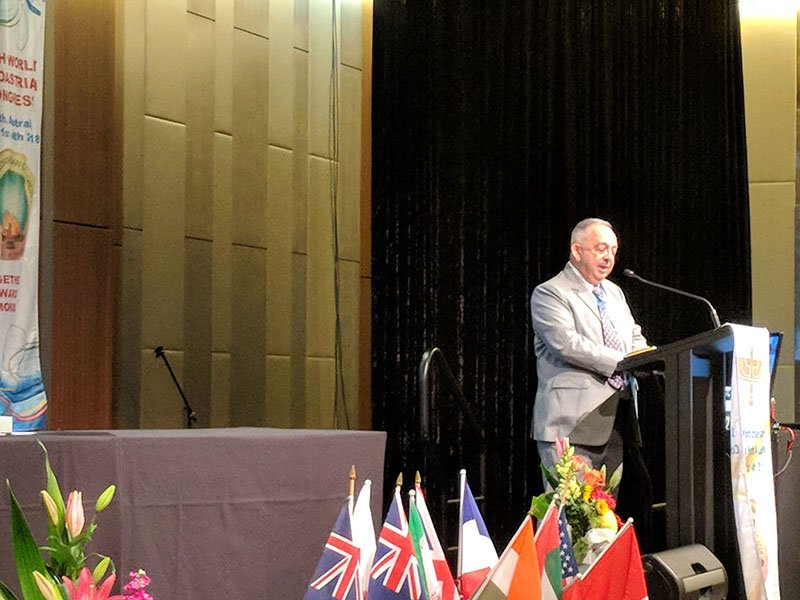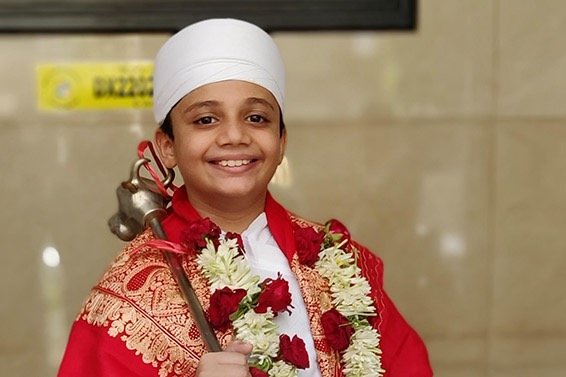Intelligent Conservatism Can Improve Parsi Survival Prospects
This is the text of a talk given by Berjis Desai at the recently concluded 11th World Zoroastrian Congress in Perth Australia. Berjis is an eminent legal counsel, journalist and columnist residing in Mumbai India. The text of the article is published with his permission.
1. WHAT IS INTELLIGENT CONSERVATISM
1.1 While the Zoroastrian faith is not in any imminent danger of dying, the Parsis, as a racial group, face an existential threat. This presentation sets out as to how this threat can be diminished, if issues, dividing the community, are intelligently resolved. This applies predominantly to the Parsis in Mumbai and other parts of India, and to a limited extent, to the diasporas around the world.
1.2 These issues are: racial identity including adoption and conversion, admission into places of worship; disposal of the dead, dealing with non-Parsi Zoroastrians, managing community and philanthropy institutions and combating Indifference.
1.3 For those denying that Parsis face an existential threat, the following three statements are adequate. Our fertility rate is one of the lowest in the world. We have the highest number of bachelors and spinsters in the world. Our demographic decline rate of 12% per decade is one of the highest in the world. The existential threat, is, therefore, real and accelerating.
1.4 For more than four decades, I have been one of those arguing for a more ‘open door’ approach. However, we have now reached an inflection point in the struggle to survive. Preserving our uniqueness is critical. Maintaining our distinct identity is critical. We no longer have the luxury to fight each other. Intelligent conservatism is, therefore, the need of the hour.
1.5 What then is Intelligent conservatism? Avoiding extreme views on either side of the socio- religious spectrum; capturing the common middle ground upon which all but a few agree – that is, Intelligent conservatism. Intelligent conservatism may not always be politically correct or doctrinally pure. It is simply pragmatic. Its sole objective is to increase our numbers without losing our uniqueness. We must avoid offending the sensibilities of a large number of Parsis, and thereby, minimise the differences within the community. If we achieve this, we have a decent chance to survive. This presentation explores as to how we can make Intelligent conservatism, the consensus view.
2. RACIAL IDENTITY
2.1 Around 1900 onwards, the great religious controversies began. The Bombay High Court delivered its judgement in November, 1908 in Petit V. Jeejeebhoy, and the Privy Council in 1925 in Bella V. Saklat. Stripped of legalese, these cases dealt with the issue of who was to be regarded as a Parsi, in situations involving conversion, interfaith marriage and adoption. Neither judgement conclusively settled this prime controversy, and 110 years later, this continues to agitate minds.
2.2 The undisputed legal position is that (1) the child of a non-Parsi father and a Parsi mother is not a Parsi; (2) A non- Parsi cannot be converted to be a Parsi; and (3) adoption of a non Parsi child by Parsi parents does not make such child a Parsi. The reformists grudgingly accept the above legal position but are increasingly making efforts to change it.
Interfaith married women
2.3 It is beyond any doubt that a Parsi woman, who marries a non-Parsi, continues to be a Parsi Zoroastrian; unless it can be conclusively established that she has undergone conversion to her husband’s faith. If such a woman asserts that she continues to be a Zoroastrian, the mere fact that she is known by a different name after marriage (as is the custom amongst many Hindus) or that she is a part of her husband’s Hindu Undivided Family for taxation purposes, does not imply that she has forsaken her religion. Hence, the Goolrukh Gupta case is precisely the kind of litigation, which is damaging and unnecessary. Cash starved community charities can ill afford legal costs; rights of a woman being violated makes for bad publicity in the secular press and diminishes community goodwill; more importantly, it creates bitterness and increases the divide in the community. Let us therefore not agitate any such well-established legal position.
2.4 On the other hand, as the Fiddler on the Roof would put it, the litigation recently filed in the Calcutta High Court to assert that a navjoted child of a Parsi mother and a non-Parsi father, is, a Parsi, is to be welcomed for the following reasons.
2.5 Liberals are confident that post the Constitution of India with Article 14 guaranteeing equality between the sexes as a fundamental right, Petit and Bela are bound to be overturned. The traditionalists are equally sanguine that the Courts will regard the intention of the founder of a fire temple trust as paramount; and no such founder, a hundred years ago or more, would have ever wanted his Agiyari to be open to children of non-Parsi fathers. Constitution of India and Declaration of Human Rights are irrelevant; ultimately what matters is the interpretation of the Agiyari trust deed. The right to religious freedom is also a fundamental right and every religious minority has the right to regulate the entry of outsiders into their places of worship. There is considerable merit in both sides of the argument. However, we require a conclusive determination of this issue by the Supreme Court. It is highly likely that the Calcutta case will ultimately provide this determination. Both sides must accept such determination gracefully and then bury this controversy, once and for all.
2.6 Purely from the perspective of Intelligent Conservatism and regardless of one’s views on ethnic purity and the like, we must hope that the liberal view is upheld. It will not result in every such child becoming a Parsi. However, it will certainly prevent the loss of many Parsis. Presently, too many Parsis are being lost, on this
account. Unable to bring up their children as Parsis, interfaith married Parsi mothers become indifferent to their religious and communal identity. Many young Parsis are also repulsed by what they regard as unjustified discrimination; and start disregarding themselves as Parsis. In this battle, we cannot afford to lose a single Parsi. Every person who is thus lost also forecloses the possibility of his child being brought up as a Parsi. We require warriors in this battle. A liberal interpretation will result in the addition of many such invigorated and enthused warriors. Considering that the trend of Parsi women marrying interfaith is dramatically accelerating, this is the single biggest threat to our survival. The only way to eliminate it, is, to regard such children as Parsis.





